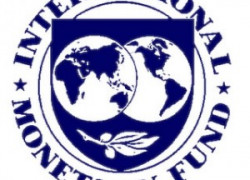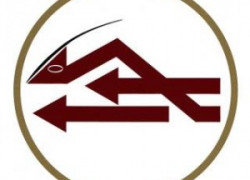
- Libya faces urgent, costly task of rebuilding its economy
- Improved institutions, management of resources to help unleash potential
- IMF remains committed to helping Libya through capacity building
Libyan oil production has recovered faster than expected following the overthrow of Muammar Gaddafi, but the country faces the challenges of building modern institutions, repairing infrastructure, and diversifying the economy, a senior IMF official said.
With the lifting of most United Nations sanctions, the bulk of frozen assets abroad have been released and normalization of the banking system is under way.
But, in an interview, the head of the IMF’s team on Libya, mission chief Ralph Chami, said the North African country faces many immediate and longer-term challenges that need to be addressed. He added: “Libya could realize its great potential if the right institutions and policies are put in place.”
A staff team from the IMF’s Middle-East and Central Asia Department, led by Chami, prepared a report entitled “Libya beyond the Revolution: Challenges and Opportunities”. Speaking to IMF Survey—the IMF’s online magazine—Chami discusses recent developments and looks at what it will take for the Libyan government to overcome the steep challenges ahead, rebuild the economy, and address the people’s aspirations.
IMF Survey online: How is Libya faring after the revolution? Is the economy getting back on its feet?
Chami: The conflict had a severe impact on the economy and especially on the hydrocarbon sector, which is the main source of public revenues and foreign exchange. During the uprising, oil production dropped precipitously from 1.8 million barrels a day to only 22,000 in July of 2011. Since the conflict ended, the production of oil has recuperated faster than expected.
Reconstruction efforts should boost nonhydrocarbon output in the coming years. In addition, the assets that were frozen during the revolution have been largely unfrozen as most UN sanctions were lifted. So there is no longer a shortage of foreign exchange, and normal imports have resumed.
IMF Survey online: What are the challenges facing the Libyan economy in the near term?
Chami: In the short term, the country faces complex and costly tasks. Coming out of the conflict, Libya needs to rebuild infrastructure and address the humanitarian needs of its people. There is a need to restore the functioning of the banking system and to consider medium-term implications when making decisions about public spending. Safety and security are also important because these would facilitate investment and the return of expatriate workers. Many well-educated Libyans live abroad and, as in other Arab Spring countries, the diaspora could come back to help rebuild the country.
IMF Survey online: How did the government respond to the peoples’ demands after the uprising?
Chami: Before the revolution, growth was not inclusive. Like in other Arab Spring countries, economic opportunities were not shared fairly among different segments of the population. Unemployment rates and the incidence of poverty have been surprisingly high for such a resource-rich country. Those reasons, combined with a lack of representation, contributed to the revolution. To respond to the needs and aspirations of the people, the government has started to increase subsidies and provide public-sector employment, especially, for young people.
IMF Survey online: What is your assessment of the measures that the government has introduced in responding to those demands?
Chami: Spending on wages and subsidies is truly needed to ease the social pressures in the near term. But, to ensure that these social protections can continue to be provided over time, the priority should be to design a well-targeted social safety net. Increasing wages and public sector employment have resulted in a 60 percent increase of the wage bill in 2011. The cost of subsidies has also gone up significantly.
While we understand the need to provide employment, we think it should be productive employment. We also understand the need to provide subsidies, but untargeted subsidies do not necessarily help the people they are supposed to help. In contrast to generalized subsidies that benefit everyone, well-targeted schemes provide assistance only to those most needy. So, fiscal discipline is needed in the coming years.
The government should make sure that the short term does not trump the long term. My advice is: in addressing temporary problems, policymakers should come up with measures that are not inconsistent with long-term overarching developmental needs. For example, we do not want to solve the problem of unemployment by providing employment for everybody in the public sector, because that would not be the most desirable permanent solution.
IMF Survey online: What are the medium-term challenges that Libya has to deal with?
Chami: Libya faces many structural problems including a lack of institutions, weak governance, and chronic structural unemployment. Over the medium term, Libya will need to build its institutions and respond to the demands and aspirations of its population. To achieve this, Libya needs to diversify its economy away from oil dependence. There is also a need to create an enabling business environment that will facilitate private sector–led growth and job creation. Areas where the business environment needs improvement include governance, transparency, accountability, rule of law, property rights, and access to finance. In addition, there will be a need to put in place an efficient social safety net to protect the most vulnerable groups of the population.
IMF Survey online: What are Libya’s economic prospects now?
Chami: Despite the challenges in the period ahead, the revolution could unleash Libya’s huge economic potential by promoting greater inclusiveness and transparency, and enhanced governance. Combined with sound management of resources, these positive factors can leverage the country’s inherent strengths: a dynamic and young population, an abundant wealth, a beautiful coastal line, access to key markets, and a privileged geographic position.
Libya has a great potential to diversify meaningfully by having vibrant tourism and service sectors. An undesirable path would be to continue to have an oil-dependent economy in which the government is the main employer and the private sector employs mostly expatriates.
IMF Survey online: How is the IMF helping Libya during the transition period?
Chami: Given the abundant resources Libya possesses, there will be no need for financial assistance from the IMF. What Libya needs in the coming years is technical assistance to build capacity and better manage its wealth. With a mission in late 2011, we have already provided the new government with advice on measures to improve governance at the sovereign wealth fund and, in January 2012, the IMF and World Bank started work with the authorities to strengthen public financial management. In addition, we are resuming technical assistance activities at the central bank.
When the Prime Minister met with the IMF’s Managing Director a few months ago, he explicitly asked for the Fund’s help in capacity building. To this end, the government has requested assistance in reforming the system of untargeted subsidies and an IMF Fiscal Affairs Department expert is to arrive in Tripoli in April. The view is to develop a comprehensive safety net, in an effort to make growth more inclusive.
The Fund will continue to help in the area of public financial management. This includes assessing the financial management of all Libyan funds run by the central bank and the sovereign wealth fund, with the aim of providing recommendations on how to enhance accountability and transparency. The attitude of the new government in this particular area is incredibly positive, and we commend them for that.
(Source: International Monetary Fund Survey)






.jpg)



.jpg)